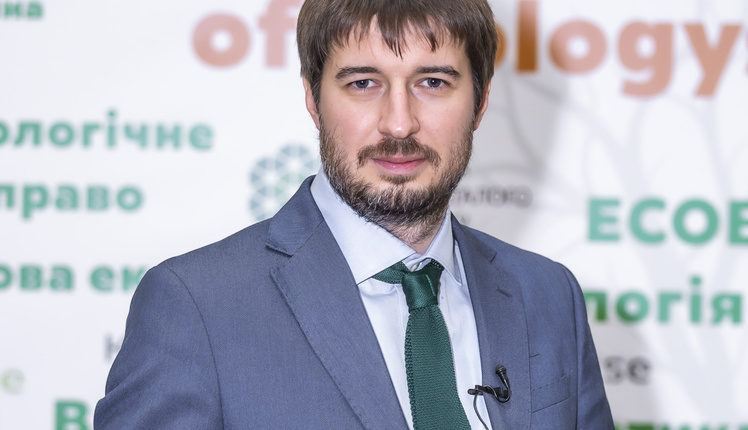
Opinions State legislation 765 05 June 2023
The positive aspect of the document is the implementation of an integrated environmental permit and BATM
At the end of May, the Verkhovna Rada adopted the draft law №6004-d «Draft of the Law on ensuring the constitutional rights of citizens to an environment safe for life and health».
The document, which provides for the reform of industrial pollution, was supported by 301 people’s deputies.
Prehistory
Draft Law №6004-d was registered in the Verkhovna Rada of Ukraine on January 4, 2023. Its initiators were deputies of the Verkhovna Rada Committee on environmental policy and nature management. This draft Law should implement Directive 2010/75/EC on industrial emissions into Ukrainian legislation. The draft law applies to energy, mining and steel, chemical, cement, oil and gas and other industries.
Almost all experts noted that the new version of the draft law was significantly improved and took into account most of the constructive suggestions of the public, specialized associations and people’s deputies.
At the same time, we must understand that from February 24, 2022, we live in a new reality that cannot be ignored. Due to the full-scale Russian aggression against our country, a large number of industrial and infrastructure facilities were destroyed, the economy faced a serious demographic crisis due to the outflow of people abroad, business has very limited opportunities to access financing. All this must be taken into account when implementing environmental reforms in our country and, in particular, in draft law №6004-d.
Pros and cons
Among the positive aspects, the introduction of the so-called integrated environmental permit can be noted. This should be a single permit document that should combine the currently existing separate permits for air pollutant emissions, special water use and waste management. This approach should ensure comprehensive management of environmental risks of industrial enterprises and prevent the transfer of risks from one area of the environment to another.
The introduction of best available technologies and management methods (BATM) directories in Ukraine is also positive. These are such generalized lists of technologies for each industry that should be implemented at enterprises within a certain time. Currently, the draft law provides for a maximum period of almost 12 years for the introduction of BATM. This term consists of six months for the implementation of the draft Law, four years for the development and approval of the conclusions of the BATM, and a possible retreat (postponement of requirements) for up to 7 years.
The negative aspects of the draft law include the fact that it does not very clearly define the sources of funding for environmental modernization and measures to introduce BATM. The draft Law provides for financing from the state budget of Ukraine, preferential and interest-free credits and loans, state grants and subsidies, tax and customs benefits and other sources. However, the draft law does not provide specific mechanisms for obtaining such funding. This is a very important issue, because almost all environmental reforms of the previous years have faltered due to the lack of clear sources of their financing.
Impact on industry
On the one hand, industrial enterprises will receive transparent and clear rules of the game. Now it will not be necessary to invent the wheel to carry out ecological modernization, but BATM guides will be able to be used. On the other hand, in the absence of effective financing mechanisms for environmental measures, the industry may face the fact that environmental requirements for the implementation of BATM will actually be impossible to fulfill. In this case, our enterprises, which have already suffered because of the war, will be forced to close and lay off workers.
The fate of the bill
The most important thing is to take into account the conditions of martial law and give the opportunity for industrial enterprises to adapt to the new rules of the game in a calm mode. Experts and people’s deputies have many suggestions for improving the text of the draft law, but here I will make the most important comments.
First of all, it is necessary to postpone the implementation of BATM for the period of martial law. There is nothing wrong with this, because even in the EU, where Directive 2010/75/EU was put into effect in 2010, concessions for some enterprises still continue and the implementation of BATM is constantly postponed.
Secondly, for the period of the war and until the introduction of new environmental regulations under BATM, record the current environmental regulations, which were stipulated by the valid permit documents of the enterprises, as of February 24, 2022.
Thirdly, to improve the requirements for setting up automated monitoring systems. According to Article 16 of Directive 2010/75/EC, the monitoring requirements must be based on the conclusions of the BATM and apply only to some installations.
Well, the most important thing is to provide concrete and effective mechanisms for financing measures for the implementation of BATM, so that an important environmental reform does not turn into a simple imitation of turbulent activity.
Practical implementation
It is impossible to say how much implementation of BATM will cost for one enterprise, because all enterprises are different. There are steel plants, the modernization of which can cost several billion dollars. And there are, for example, enterprises of the pulp and paper industry, the modernization of which will cost much less. I can give such an example. According to the estimates of various experts (in particular, GMK Center) implementation of BATM at mining and steel enterprises may cost $3-6 billion.
In the conditions of war, it is practically impossible to introduce BATM. There are objective factors for this. Now it is impossible to attract capital, impossible to use world technologies (foreigners will not come to us to fix them) and very difficult to build (due to shelling and insufficient number of working personnel).
If an industrial enterprise does not have time to introduce BATM and fulfill all other requirements of the draft law within the established time, it can choose the so-called permit to die, i.e. stop its activity after the expiration of the permit.




